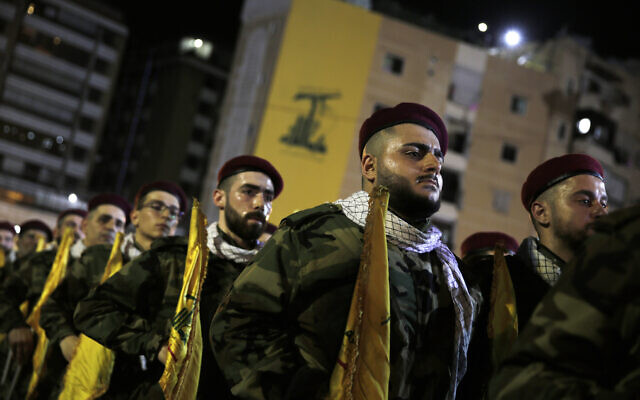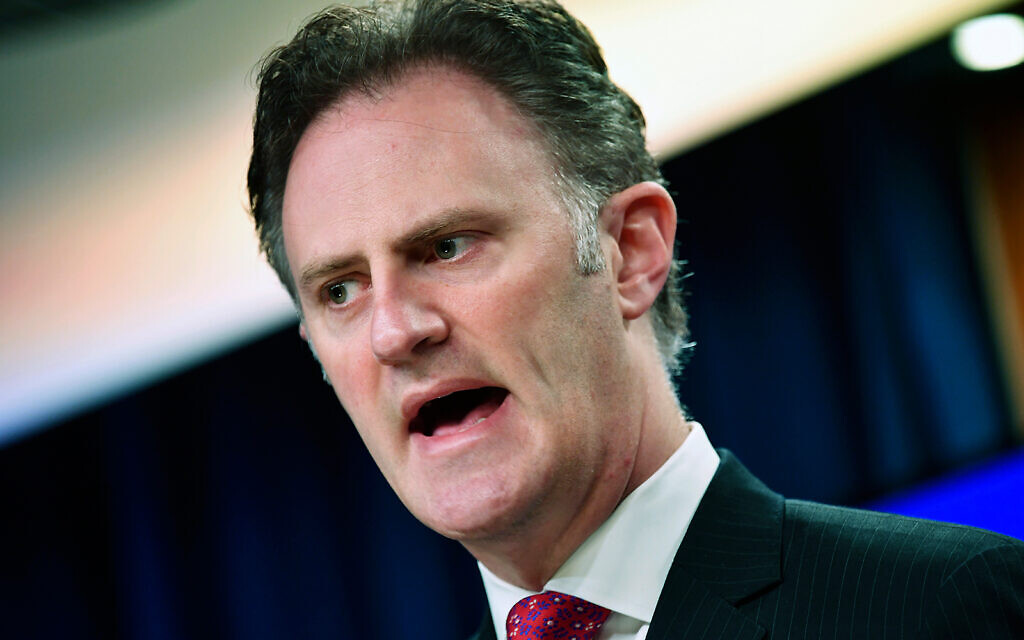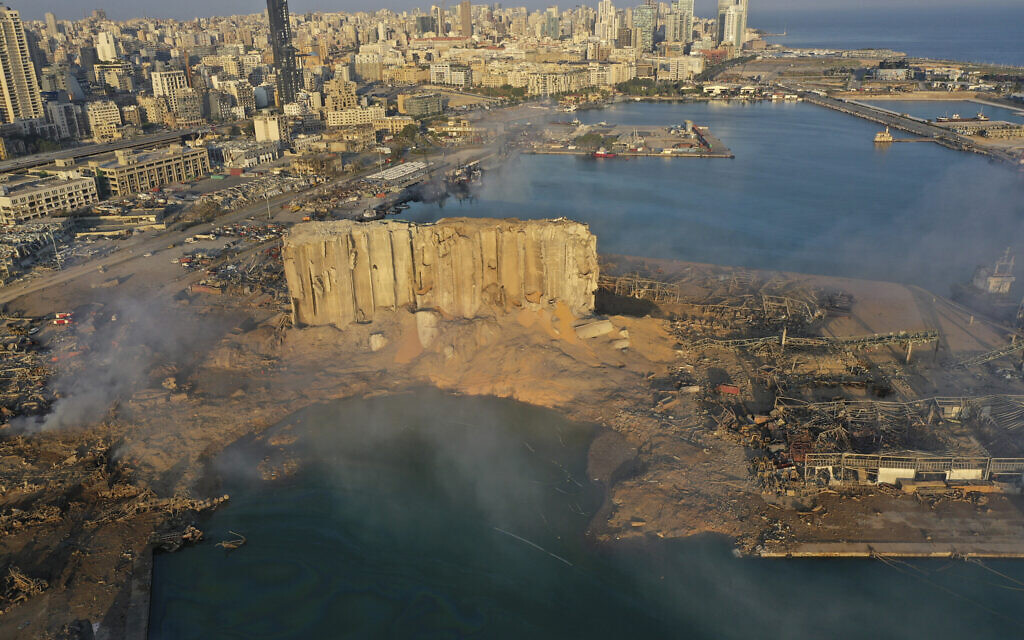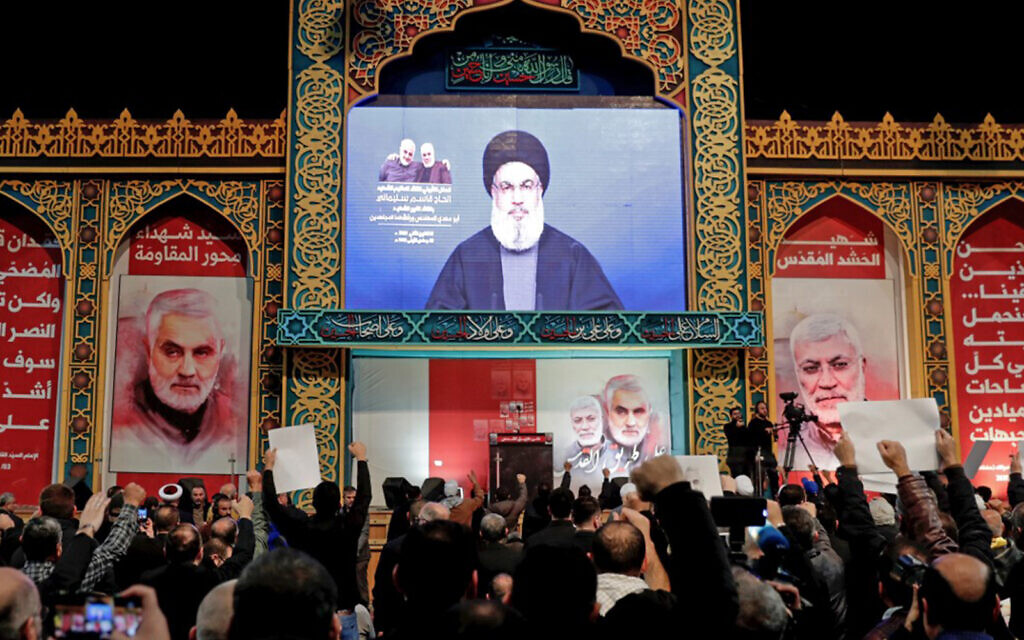State Department official says terror group smuggling ammonium nitrate in first aid kits for use in terror attacks, calls on European states to impose bans on organization

Hezbollah has stored ammonium nitrate, a chemical that can be used to make explosives, in several European countries, a senior US State Department official said Thursday.
Nathan Sales, the State Department’s coordinator for counter-terrorism, made the accusation as he appealed to countries in Europe and elsewhere to impose bans on the terror group.
Hezbollah operatives have moved ammonium nitrate from Belgium to France, Greece, Italy, Spain and Switzerland in recent years, and are suspected of still storing the material throughout Europe, Sales said.
Ammonium nitrate is the chemical compound that caused the catastrophic blast at Beirut’s port last month. It is commonly used as a fertilizer, but can be used to make explosives, and has been used in previous terror attacks.
Sales, without offering evidence, said the US believes that Iran-backed Hezbollah has since 2012 transported ammonium nitrate around Europe in first aid kits with cold packs that contain the compound. The United States believes these supplies are still in place throughout Europe, possibly in Greece, Italy and Spain.
“Why would Hezbollah stockpile ammonium nitrate on European soil?” he said. “The answer is clear: Hezbollah put these weapons in place so it could conduct major terrorist attacks whenever it or its masters in Tehran deemed necessary.”

Sales made the remarks in an online forum hosted by the American Jewish Committee, which has called upon more countries to ban Hezbollah and its operations.
The US has designated Hezbollah as a foreign terrorist organization since 1997.
The European Union lists Hezbollah’s military wing as a banned terrorist group, but not its political wing, which has been part of Lebanese governments in recent years.
Some individual countries, including Germany and the UK, have outlawed the group in its entirety. Sales called on more countries to do the same.
Hezbollah is a “unitary organization that cannot be subdivided into a military and so-called political wing,” he said, adding that without a full ban, the group can still raise money and recruit operatives.
“Hezbollah is one organization,” he said. “It is a terrorist organization.”
The August 4 blast in Beirut killed over 190 people and caused billions of dollars in damage. It was caused by 2,750 tons of ammonium nitrate that caught fire while in a warehouse. The material had been stored at the port since 2013 with few safeguards despite numerous warnings of the danger.

Israel’s Channel 13 said shortly after the blast said that Hezbollah planned to use the ammonium nitrate stockpile against Israel in a “Third Lebanon War.” The report did not cite its sources.
The report was broadcast hours after Hezbollah’s leader, Hassan Nasrallah, gave a speech “categorically” denying that his group had stored any weapons or explosives at Beirut’s port.
Ammonium nitrate has been blamed for massive industrial accidents in the past, and was also a main ingredient in a bomb that destroyed a federal building in Oklahoma City in 1995.
Last year, reports in Israel claimed that the Mossad had tipped off European intelligence agencies about Hezbollah storing caches of ammonium nitrate for use in bombs in London, Cyprus and elsewhere.
Hezbollah has previous connections to ammonium nitrate, including incidents in Germany and the UK, both widely reported at the time, in which its agents were reportedly found with substantial quantities of the material.

In London in 2015 British intelligence found four Hezbollah operatives with 3 tons of ammonium nitrate held in flour sacks, according to UK media. Israel’s Mossad intelligence agency tipped off German officials about Hezbollah operatives in southern Germany with enough ammonium nitrate “to blow up a city,” according to a May Channel 12 report. Germany subsequently banned Hezbollah as a terrorist organization.
Germany’s Die Welt news outlet, citing Western security sources, reported last month that Iran supplied Hezbollah with hundreds of tons of ammonium nitrate in 2013-2014.
The report said that Tehran’s extra-territorial Quds Force supplied Hezbollah with some 670 tons of ammonium nitrate in mid- and late-2013, charging some $72,000 for it.
A Western security expert also told Die Welt Hezbollah may have sought ammonium nitrate for attacks against Israel, noting that the organization was working at the time on digging numerous attack tunnels into Israel, and positing it planned to employ the explosives for attacks using those tunnels.
As reported by The Times of Israel
